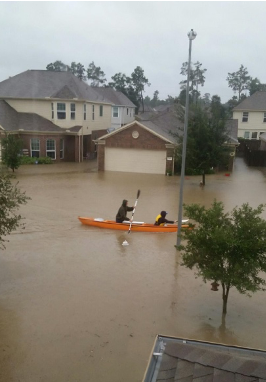How do you think about politics? What I mean is—what are your thought processes as you make decisions on what you believe regarding national politics, statewide issues, or local concerns? Do you base your views on traditional values, biblical considerations (not necessarily the same thing), or social justice?
Here’s an idea: What would happen if we consistently thought of groups we are in—whether our country, our state, our county, our neighborhood, our school—as a FAMILY. Would that change anything in terms of how we landed on our beliefs?
Take an easy example: During Hurricane Harvey, my parents were almost stranded in their closed-in neighborhood. We needed help getting them out. We had no truck, no towing capability—and no boat. However, we had at our fingertips a Facebook group dedicated to our neighborhood. Instead of wringing my hands wondering how we could save my parents, I went straight to this “family” and asked for help. Two strangers—men I had never seen before—immediately offered to use their trucks to bring out my parents. Can I emphasize: I did NOT know these men. I did NOT know their motives. I did NOT know if they were trustworthy! But—this group, which consisted of lots of unknown people in my neighborhood, I considered family. If these men had been biologically related to us, I wouldn’t even hesitate in asking for help! How could I, then, ask for help here? Because I consider my neighborhood my family.Although the weather was dicey, these men saved my parents with their trucks. I’m pretty sure my parents were one of the last to be removed from their neighborhood without a boat.

Different times demand different perspectives, but my idea is that as we consider what response we should give to certain events or scenarios, we either put boundaries around these groups as if they were our families—and protect them—or we open boundaries up to allow new ideas or other responses in to the family. In my parents’ situation, we clearly were in a crisis, and I knew there would be people out there who would graciously help us—so I opened up my perspective on this group to include them as family. And they did help us—just like a family would. Of course, there are times when being a family means we don’t help—because it would be appropriate to protect our loved ones as we would a family.
So—what are your groups? Can you think of these groups of people—neighbors, school chums, nation—as family? I argue that you can. Tell me what you think! Next time we’ll take this concept a bit further. ~nja
